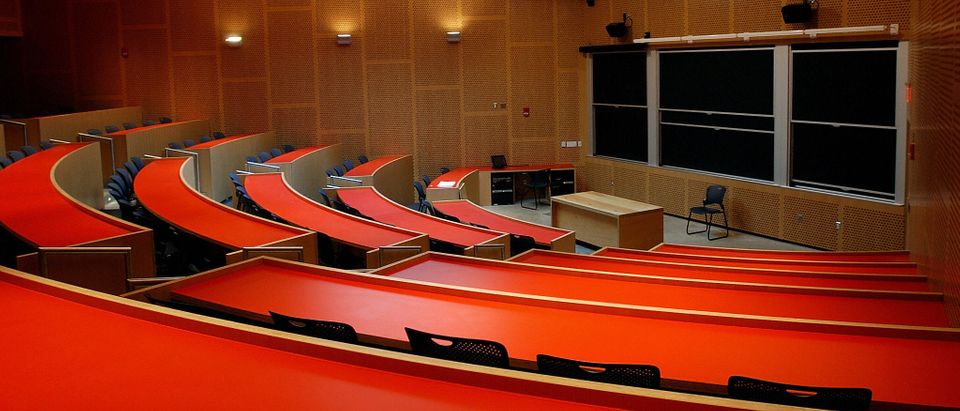Nearly 200 academics with beliefs from across the political spectrum launched an organization Monday that will defend free speech for college faculty members, and will provide legal aid in cases where “academic freedom is threatened.”
The Academic Freedom Alliance (AFA) was formed by Princeton University professors who say they have witnessed a growing intolerance of opposing perspectives that threatens the ability of academics across the country to teach and research freely. Keith Whittington, the chair of AFA and the William Nelson Cromwell Professor of Politics and Princeton University, told the Daily Caller that after numerous conversations with other professors over a long period of time, they wanted to start a group that would include faculty from an “array of political viewpoints” who united on a single cause — protecting academic freedom at their universities.
“Those conversations that were kind of abstract sort of came together into something a little more concrete last spring,” Whittington said. “We decided this shouldn’t just be a Princeton based initiative, it needed to be a national initiative. It needed to involve a broad coalition of professors at different institutions from a wide range of backgrounds and perspectives.”
The group includes Harvard University’s Cornel West, a supporter of Independent Vermont Sen. Bernie Sanders, and retired Vanderbilt University professor Carol Swain, who supported former President Donald Trump, according to the Associated Press.
Pleased to join many others from across political spectrum as inaugural members of the Academic Freedom Alliance @AFA_Alliance https://t.co/ALYjhNzXkO.
From USC to Auburn and on and on, too many denouncements and absurd demands for people to lose jobs: https://t.co/H5P8X0Kh24
— Nicholas A. Christakis (@NAChristakis) March 8, 2021
I’m proud to be one of the founding members of the Academic Freedom Alliance: https://t.co/EnnxiSP5Cs Credit to @kewhittington , @McCormickProf and the other members of the leadership team for picking up the idea of NATO for professors and running with it.
— Niall Ferguson (@nfergus) March 8, 2021
I’m delighted to join 200+ colleagues in the Academic Freedom Alliance–a group of scholars from across the academic disciplines and the political spectrum who’ve united to protect freedom of thought and speech on campuses by treating an attack on one as an attack on all.
— Robert P. George (@McCormickProf) March 8, 2021
Regardless of political alignment, AFA’s mission statement says that the group’s members will defend academic freedom by defending other faculty members’ freedom of expression in their academic work, within ethical and legal bounds. The group itself would support faculty facing censure for certain speech with legal support.
Currently, membership in the group, which is a non-profit, is invite-only, but AFA intends to allow applications for membership in the future, according to the group’s website.
Whittington said that there was growing apprehension in academia about what professors teach and what subjects researchers can pursue to study. (RELATED: Why An Accomplished Researcher Turned His Back On Academia)
“I think people are cautious about what they teach, how they teach, what kind of scholarly questions they pursue, what kind of publications that looks like and what they’re willing to say in public,” he said. “So this concern that there might be repercussions to what you say, if you say something that winds up landing in the middle of controversy. There’s a chilling effect, even on the very core activities that academics do in their teaching.”
Whittington pointed to recent examples where universities faced public or internal pressure to penalize faculty for speech that sparked backlash. At the University of Southern California, a professor in the business school was placed on leave after students complained that he had used a Chinese word that sounds like a racial slur when he was teaching a lesson on “filler words” in other languages.
In China, a common filler word is “that that that,” which in Chinese, is “ne ga, ne ga, ne ga.” Several days after students wrote a letter to the business school’s dean expressing that they were offended, the dean announced that the professor would be replaced, Inside Higher Ed reported.
During anti-police protests in summer 2020, politicians pushed for a lecturer at Auburn University to be terminated after he denounced police officers on social media, according to the Foundation for Individual Rights in Education (FIRE). The university called his comments “inexcusable” and said they would “assess the situation.”
“That kind of posting on social media is protected by most universities policies, including those in place at Auburn,” Whittington told the Caller.
What people take offense to is a “moving target,” Whittington said, which can place educators in an uncomfortable position when they are tasked with teaching sensitive subjects.
“It’s further chilling about what kind of speech you can engage in when you’re trying to anticipate how this will be received by people who want to take it the least charitable way and then go after you.”
Whittington said he and his colleagues were pleasantly surprised to find that there was interest among so many people from differing backgrounds when they reached out to other academics to join as founding members. So far, he hasn’t faced any condemnation from academics who don’t share the same liberal views about speech, but he expects the denunciations to come soon.


